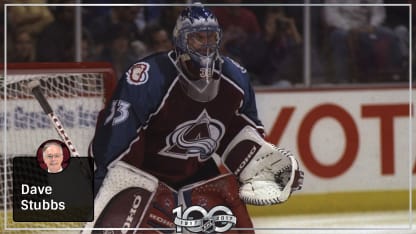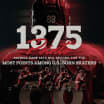But for all of Roy's achievements, he reserves a special place for his milestone, a record that will be his forever, of being the first goalie in NHL history to play 1,000 regular-season games.
The native of Quebec City reached the plateau in Denver with the Avalanche on Jan. 20, 2003, a few months before his final NHL game. The 1-1 tie against the visiting Dallas Stars was a footnote to Roy playing his 1,000th game, making 29 saves that night against Marty Turco.
Roy had overhauled scores of NHL goaltending records on his road to 1,000. Earlier that 2002-03 season, Roy's 18th full year in the NHL, he rewrote two notable standards held by the legendary Terry Sawchuk - in October, Roy passed the latter's NHL-record 971 games played; the following month, he eclipsed Sawchuk's minutes-played of 57,194.
There had been considerable fanfare in the final days leading to the Jan. 20 game in Denver, Roy knocking on the door of goaltending history.
His first contract with the Canadiens, signed in July 1984, contained a bonus clause that would pay him $5,000 should he play 40 or more games in his rookie season. He did much more than that in 1985-86, playing 47 games then anchoring the Canadiens to a Stanley Cup championship and winning the first of his three Conn Smythe trophies.
"At first, my only goal was to earn a job in the League," Roy said, quoted by his father, Michel, in the 2007 biography "Patrick Roy: Winning, Nothing Else."
"Then, it was to survive, then to produce consistently excellent performances and to apply myself, with intensity and perseverance, in practices and games."
Roy's historic 1,000th game was preceded by a ceremony to recognize the achievement. Jim Gregory, then the NHL's vice-president of hockey operations, presented the goalie with a crystal sculpture on behalf of the League.



















